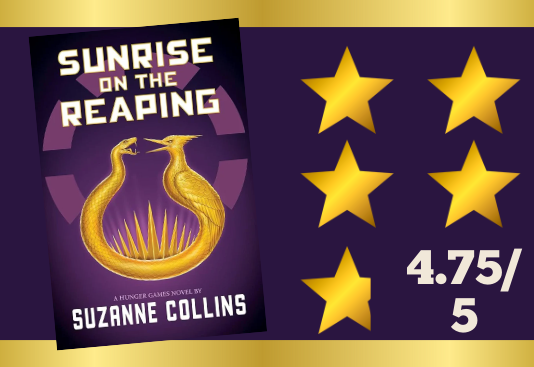Award-winning author R.F. Kuang just released her 7th novel, Katabasis. Set in Cambridge University and the underworld, Katabasis follows Alice Law and Peter Murdoch as they attempt to bring their morally ambiguous professor back from the dead. This book is on the longer side, 541 pages, and it took me around 8 ½ hours to read. While I rated the book four stars, I had extremely mixed feelings about Katabasis. On the one hand, there was enjoyable world-building and an interesting overall plot, but these elements got lost under iffy plot points and complicated, textbook-esque explanations.
I’ll start with this book’s strengths. Katabasis had a very intriguing concept and entertaining worldbuilding. Similar to most dark academia books, there were some gothic elements to Katabasis. There was a good balance between flashbacks and the present timeline, especially towards the middle of the book. The middle was actually the best part, from around page 100 to page 410, I didn’t want to put the book down. However, that leaves the beginning and end feeling subpar in comparison.
The pacing of the beginning of Katabasis felt very strange. Not only did it start abruptly, but it seemed to drag on. It became a task to get to know the characters because you’re dropped in the middle of a scene. It does smooth out eventually, but for the first chapter, I felt unmotivated to keep reading.
A big problem with this book is that things just happen for no reason. The main character does have some growth, but it wasn’t gradual enough to be believable. Characters appeared in scenes when it was convenient. Maybe this contrivance could be explained by the story’s fantasy elements, but that’s a pretty lame reason.
If you enjoy paradoxes and philosophical debates, then this book is for you. If not, then it could become a tough read. Kuang’s books tend to go on lengthy tangents that read more like textbook pages than pieces of a novel. In her book Babel, the history of language and etymology takes up a huge chunk of the book. In Katabasis, topics like logic, math, linguistics, and philosophy drag on for pages. This continued to be the largest flaw with the book. There tended to be too much info-dumping and fluff, which at times got boring and resulted in more important plot points feeling rushed when you finally got to them. I wouldn’t go as far as to say it came off as pretentious, but it clearly wasn’t geared towards every audience.
I wish I could say that I loved this book, but I can’t. There was too much going on that distracted from the really good parts. Despite all this, Katabasis was worth the effort, and I do recommend reading it if you ever get the chance; this article may have hated on it, but the pros outweigh the cons in the long run.

























